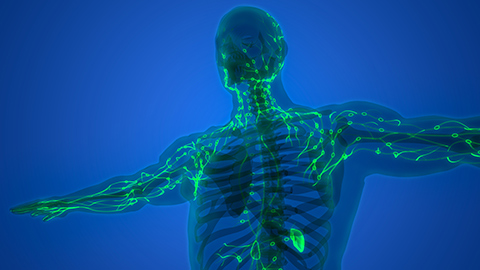12/16/2022

A massage therapist has some clients who have battled breast cancer and who have had lymph nodes removed. They are active, and healthy, and report no signs of lymphedema . . . and they want “massage as usual” on their affected arms.
Is that possible? Is it advisable? What could go wrong?
In this short, pithy discussion, Rebecca Sturgeon, co-author of Oncology Massage: An Integrative Approach to Cancer Care and educational director at Healwell, and Ruth Werner discuss the options that this practitioner might consider to keep those clients safe while offering satisfying bodywork.
Resources:
Pocket Pathology: https://www.abmp.com/abmp-pocket-pathology-app
Oncology Massage: An Integrative Approach to Cancer Care: https://us.singingdragon.com/products/oncology-massage


Books of Discovery: www.booksofdiscovery.com
0:00:01.6 Ruth Werner: Hey, I Have a Client Who listeners, did you know I have a growing library of NCB approved one hour online self-paced continuing education courses that you can do anytime anywhere. Well, now you know. Current classes include what's next COVID-19 updates for massage therapists and a massage therapist introduction to pharmacology part one and brand new, a massage therapist introduction to pharmacology part two. Classes are $20 each and they confer one hour of continuing education credit. Want to know more? Visit my website at Ruthwerner.comm and check it out. Be sure to sign up for my mailing list so you'll never miss a new class. Hi, and welcome to I Have a Client Who pathology conversations with Ruth Werner, the podcast where I will discuss your real life stories about clients with conditions that are perplexing or confusing. I'm Ruth Werner, author of a Massage Therapist Guide to Pathology and I have spent decades studying, writing about and teaching about where massage therapy intersects with diseases and conditions that might limit our clients health. We almost always have something good to offer, even with our most challenged clients, but we need to figure out a way to do that safely, effectively and within our scope of practice, and sometimes as we have all learned that is harder than it looks.
0:01:41.7 RW: Today's I have a client who story came at just the right time for me. As you might be able to tell, I've been caught by the non COVID crud, and I don't have much of a voice. But the question I got as part of a different conversation with a massage therapist this week is really outside my Bailey like, so I called in my friend, Rebecca Sturgeon to help me, and she is going to do all the heavy lifting. Rebecca please would you introduce yourself and give us a little information about why I reached out to you about this question.
0:02:13.6 Rebecca Sturgeon: Well, I am Rebecca Sturgeon, and I am strong like glue, so I can do the heavy lifting. I am the Healwell Education Director and co-author of oncology massage and integrative approach to cancer care book from handspring publishing came out in 2021.
0:02:33.6 RW: Very good. And that's exactly why I thought you would be the right person for this question. So here's how this story went. This person I was chatting with about something entirely different. And they came up with this little scenario, they said, I have some clients who have all successfully been treated for breast cancer and they had lymph nodes removed during that process. And they say they have no swelling or other side effects and they're very robust and they're very active and they want to receive vigorous massage. When I voice some caution about that, particularly for their affected arms because of the possibility for lymphedema. Generally, the thinking was I was being overly cautious and I guess it sounds like there are other massage therapists in my area who make no special accommodations for this. So, my question is, are these clients really ready for a massage as usual, because it doesn't feel quite right to me. This is Ruth again, anyone will tell you that when I get a question about massage in the context of cancer I almost immediately punt to someone who knows more than I do about that topic. And that means almost anyone with advanced education but in this case of course we hit the jackpot.
0:03:44.9 RW: So, Rebecca, what I'd like you to do is tell us exactly what this massage therapist should do with a client who's been treated for breast cancer and has lymph nodes removed and this client maybe wants some good deep petrissage and stripping of her upper arm.
0:03:58.3 RS: Well, if they haven't done so already the first thing that this massage therapist do, should do is get oncology training.
0:04:03.8 RW: I'm going to stop you right there because that's exactly what I said and I think this is an opportunity to make a really good point. I think there's an attitude in our profession that you do oncology training when you have clients who have cancer, which is different from realizing that there's a benefit to be gotten from that education when we have clients who have any history of cancer.
0:04:33.1 RS: Yeah, exactly. I mean, in my opinion, oncology training, real oncology training should be part of foundational training because of the long term and late effects of cancer treatment, which is kind of what this sounds like what this therapist is running into. Her clients, their clients who have had lymph nodes removed for whatever reason or in a field of radiation, which is physiologically the same as having them removed and it renders them inert, for lack of a better word. These humans are considered at risk for lymphedema for the rest of their lives. Lymphedema is not a thing that develops all the time. It's not a thing that develops right away. It can be triggered years after treatment. It can be triggered right after treatment. It can never be triggered. And the problem is, or the challenge is that we don't have the tools to identify which people are the ones who will never develop lymphedema.
0:05:41.6 RW: You know, a really common rubric that I use is if your client is really active and they are exercising and they're pushing their strength limits, there's probably nothing in a 60 minute massage that is going to challenge them beyond that. But this is a situation where that might not actually be true. Is that correct?
0:06:02.4 RS: That's correct. That is, in my understanding, that is correct. With more clinical experience, with more experience with different bodies who have had lymphatic systems that are compromised, people's ability to make clinical decisions and their ability to work within those decisions is wide. Right?
0:06:23.2 RS: But according to my training and research, I don't think it ever widens beyond, oh, you don't ever have to worry about it. Physiologically, lymphedema is the fluid that produces the swelling in lymphedemas lymphatic fluid, which is rich in protein and is therefore very susceptible to bacterial infection. Lymphedema is also a lifelong chronic condition. There are treatments, there are always treatments being developed and tested and whatnot. But as of now, as far as I know, it is a disease that is managed and not cured. And the management of lymphedema is very time consuming and expensive and can be kind of a pain.
0:07:03.4 RW: And would be better if it didn't arise to begin with, if that's a possibility.
0:07:08.4 RS: Absolutely. Absolutely. Yeah, it's also a primary quality of life indicator.
0:07:14.2 RW: So for this massage therapist who has a client or some clients who would really like to receive, let's call it massage as usual, on the arm that has been affected by the loss of some lymphatic function, what I'm inclined to suggest is that they start by doing quite light manual lymphatic drainage type work and then maybe progress to slightly more intrusive kinds of work over a period of time to track for changes. So I guess what I'm asking is, is it possible to have like really mild lymphedema and not have to go all the way down the very, very difficult treatment route? Or is it really a matter of you're in it up to your neck or you're not?
0:08:00.6 RS: Yeah, that's an excellent question. My understanding is that once you have lymphedema, you have lymphedema and you can manage it in such a way that it remains mild. But that requires vigilance and that vigilance includes knowledgeable massage that is not going to tax your body in a way to sort of push that lymphedema to the next level. It is also possible that someone will never develop lymphedema. And again, because we don't have the tools to see who that person is, we follow principle by your friend of mine, Tracy Walton, when in doubt, don't. Yeah.
0:08:40.2 RW: So your advice for this massage therapist then?
0:08:43.8 RS: Yeah, I think remain cautious, pursue the education that you need to understand the clinical reasons why you're remaining cautious and to get enough education so that you can then explain those reasons to your clients. And I think what you said earlier, Ruth, about moving forward gradually, checking in on a regular basis, these are clients with whom I would establish the tradition of the follow up call, the next day follow the next day, maybe one week follow up call, especially if you are inching forward into more aggressive techniques to work with their bodies.
0:09:22.4 RW: Sounds great. All right. Rebecca, I want to thank you so much for helping me out this week. It was wonderful to see you. And maybe there will be more questions where I can have you come in and do my job for me, too.
0:09:33.3 RS: Anytime. Thank you so much.
0:09:36.4 RW: Okay, thank you. Hey, everybody, thanks for listening to I Have a Client Who pathology conversations with Ruth Werner. Remember, you can send me your I have a client who stories to, Ihaveaclientwho@abmp.com. That's, Ihaveaclientwho, all one word all lowercase, @abmp.com. I can't wait to see what you send me. And I'll see you next time.





